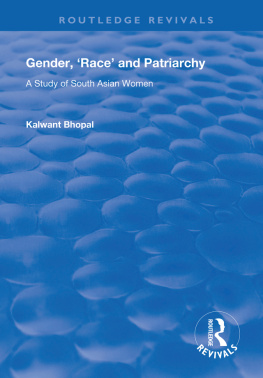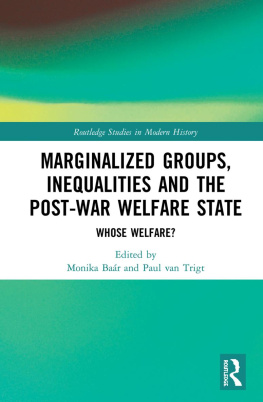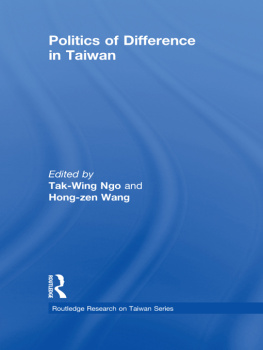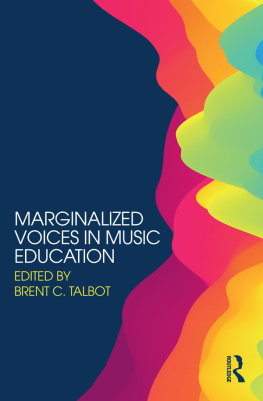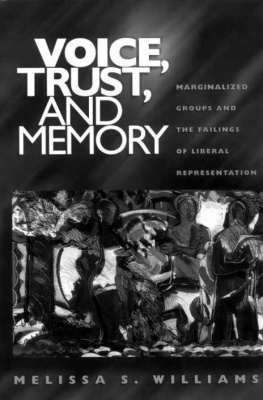Kalwant Bhopal - Researching Marginalized Groups
Here you can read online Kalwant Bhopal - Researching Marginalized Groups full text of the book (entire story) in english for free. Download pdf and epub, get meaning, cover and reviews about this ebook. year: 2015, publisher: Taylor & Francis, genre: Politics. Description of the work, (preface) as well as reviews are available. Best literature library LitArk.com created for fans of good reading and offers a wide selection of genres:
Romance novel
Science fiction
Adventure
Detective
Science
History
Home and family
Prose
Art
Politics
Computer
Non-fiction
Religion
Business
Children
Humor
Choose a favorite category and find really read worthwhile books. Enjoy immersion in the world of imagination, feel the emotions of the characters or learn something new for yourself, make an fascinating discovery.

- Book:Researching Marginalized Groups
- Author:
- Publisher:Taylor & Francis
- Genre:
- Year:2015
- Rating:4 / 5
- Favourites:Add to favourites
- Your mark:
- 80
- 1
- 2
- 3
- 4
- 5
Researching Marginalized Groups: summary, description and annotation
We offer to read an annotation, description, summary or preface (depends on what the author of the book "Researching Marginalized Groups" wrote himself). If you haven't found the necessary information about the book — write in the comments, we will try to find it.
Researching Marginalized Groups — read online for free the complete book (whole text) full work
Below is the text of the book, divided by pages. System saving the place of the last page read, allows you to conveniently read the book "Researching Marginalized Groups" online for free, without having to search again every time where you left off. Put a bookmark, and you can go to the page where you finished reading at any time.
Font size:
Interval:
Bookmark:

Transformation in Scholarly Practice
Edited by Nicholas W. Jankowski
Edited by Ann Rudinow Stnan, Heidi Mork Lomell, and Svein Hammer
Problems and Possibilities in the Translocation of Research Methods
Edited by Simon Coleman and Pauline von Hellermann
A Relational Constructionist Approach
Sheila McNamee and Dian Marie Hosking
T.D. Stanley and Hristos Doucouliagos
A Reflexive Approach
Edited by Louise Phillips, Marianne Kristiansen, Marja Vehvilinen and Ewa Gunnarsson
Edited by Gabriele Griffin, Annelie Brnstrm-hman and Hildur Kalman
Edited by Gabriele Griffin, Katarina Hamberg and Britta Lundgren
Theory, Methodology, and Methods
Eve Tuck and Marcia McKenzie
Social Science Research in Motion
Edited by Charlotte Bates
Edited by Daniella Kuzmanovic and Andreas Bandak
Re-Envisioning Research
Edited by Phillip Vannini
Edited by Nancy Duxbury, W.F. Garrett-Petts and David MacLennan
Edited by Kalwant Bhopal and Ross Deuchar

by Routledge
711 Third Avenue, New York, NY 10017
2 Park Square, Milton Park, Abingdon, Oxon OX14 4RN
Researching marginalized groups / edited by Kalwant Bhopal and Ross Deuchar.
pages cm. (Routledge advances in research methods; 14)
Includes bibliographical references and index.
1. Marginality, SocialResearchMethodology. 2. SociologyMethodology. I. Bhopal, Kalwant. II. Deuchar, Ross.
HM1136.R47 2015
301.01dc23
2015011519
ISBN: 978-1-315-74078-2 (ebk)
by Apex CoVantage, LLC
| KALWANT BHOPAL AND ROSS DEUCHAR |
| SECTION I Researching the Marginalised: Ethics, Access and Voice |
| ALEXANDRA ALLWEISS |
| GAVIN BAILEY |
| SOULA MITAKIDOU, PANAGIOTA KARAGIANNI AND EVANGELINA TRESSOU |
| TIAGO NEVES AND CARLA MALAFAIA |
| ROSS DEUCHAR |
| JOAN G. MOWAT |
| KARI GUSTAFSON |
| SECTION II Difficulties and Dilemmas of Researching Marginalised Groups: Researcher Positionality and Reflexivity |
| STACEY J. LEE |
| DARIA TKACZ AND DEREK MCGHEE |
| EMILIANO GRIMALDI, ROBERTO SERPIERI AND EMANUELA SPANO |
| MYRA F. TAYLOR, JULIE ANN POOLEY AND GEORGIA CARRAGHER |
| SHAMINDER TAKHAR |
| SECTION III Towards a Theoretical Understanding of Researching Marginalised Groups |
| THERESA AUSTIN, FATIMA PIRBHAI-ILLICH, RACHEL GRANT, SHELLEY WONG, GERTRUDE TINKER SACHS, ILHAM NASSER AND YURI KUMAGAI |
| KATE HATTON |
| MARTIN MYERS |
| STEVEN LOCKE, CARLOS J. OVANDO AND CARMEN MONTECINOS |
| LENA NARE AND PETER HOLLEY |
| TINA WILCHEN CHRISTENSEN |
| ROSS DEUCHAR AND KALWANT BHOPAL |
Font size:
Interval:
Bookmark:
Similar books «Researching Marginalized Groups»
Look at similar books to Researching Marginalized Groups. We have selected literature similar in name and meaning in the hope of providing readers with more options to find new, interesting, not yet read works.
Discussion, reviews of the book Researching Marginalized Groups and just readers' own opinions. Leave your comments, write what you think about the work, its meaning or the main characters. Specify what exactly you liked and what you didn't like, and why you think so.

